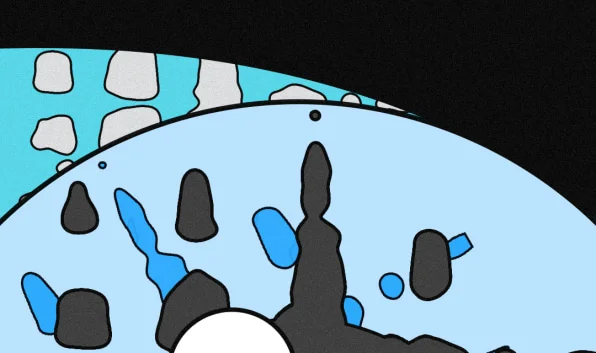The negative health effects of blue light emitted from our laptops, mobile devices, and other digital screens are common knowledge: Tech’s favorite color inhibits the body’s production of melatonin and alerts us awake, throwing off our sleep cycles. In addition to causing serious eye strain, it also increases the risk of obesity and certain types of cancer—all of which can explain the recent popularity of eyeglasses made just to filter out blue light. The effectiveness and necessity of these, meanwhile, are still up for debate.
Now, a new study published in the peer-reviewed journal Scientific Reports reports that our blue-tinted screens are even worse for us than we think—they’re steadily making us blind.
Conducting a series of cell culture and imaging tests, a research team of optical chemists from the University of Toledo found that blue light causes vital molecules in our eyes to become “toxic,” killing off photoreceptor cells in the retina that the body does not regenerate. In other words, with enough exposure, we’ll all be blinded by the light: Macular degeneration, an incurable disease that causes significant loss of vision in one’s 50s and 60s, is noted as a leading cause of blindness worldwide. In the U.S. alone, more than 2 million new cases of age-related macular degeneration are reported each year.
More precisely, the team determined that blue light exposure triggers retinal molecules to produce “poisonous chemical molecules” that cause irreparable damage to these photoreceptor cells. As one of the researchers put it: “Photoreceptor cells do not regenerate in the eye. When they’re dead, they’re dead for good.”
“We are being exposed to blue light continuously, and the eye’s cornea and lens cannot block or reflect it,” said Dr. Ajith Karunarathne, a biochemistry professor at UT. “No activity is sparked with green, yellow, or red light. The retinal-generated toxicity by blue light is universal. It can kill any cell type.” Karunarathne is hopeful that the new findings might lead to the development of a preventative remedy, such as an eye drop. In the meantime, he echoes previous suggestions to try out UV and blue light-filtering eyewear, and reduce screen time in the evenings


